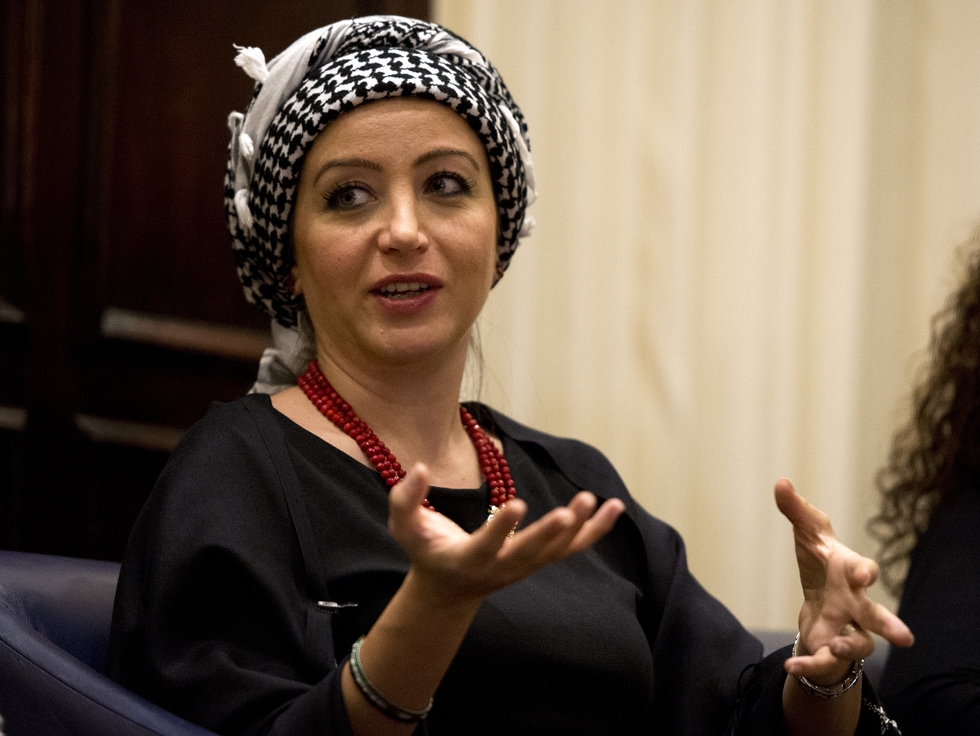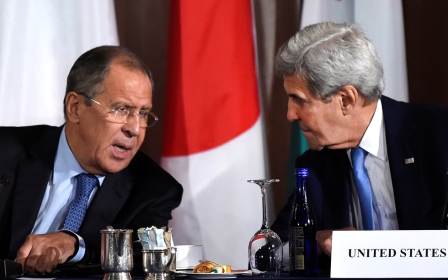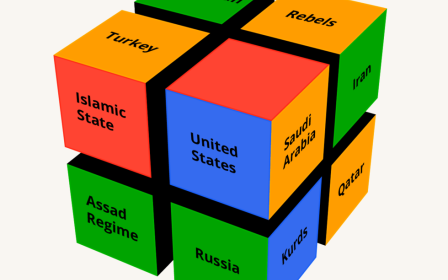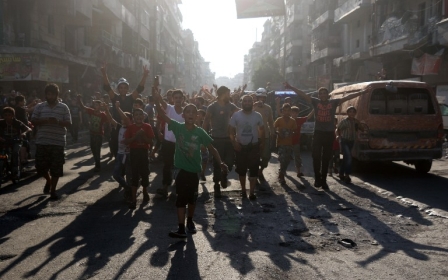UK confiscates passport of Syrian journalist after Assad government request

A Syrian journalist and activist who is a prominent critic of Bashar al-Assad’s government has had her passport confiscated by British authorities reportedly at the request of the Assad government.
Zaina Erhaim, an award-winning journalist and campaigner who has previously written for Middle East Eye, had her passport taken away by UK border officials when she landed at London’s Heathrow airport on Saturday, according to the Observer newspaper.
Officials told Erhaim, after more than an hour of questioning, that her passport had been reported stolen.
Erhaim, who is currently based in Turkey, was travelling to speak at an event at the Kew literary festival, where she was set to appear alongside the BBC’s Kate Adie. She had previously travelled to the UK in April to collect an award from Index on Censorship and faced no trouble.
“I expect to be harassed inside my country," Erhaim told the Observer.
“I know that if I went home I would be killed, but now I find that Assad’s arm can even reach to the UK. This is a dictator pursuing a journalist.”
The Home Office said that it had no choice but to comply with the Assad government's request as passports are the legal property of whichever government issues them.
“If a passport is reported as lost or stolen by a foreign government we have no choice but to confiscate it,” said a spokesperson, adding that Erhaim should seek consular assistance from the Syrian government.
The passport will be returned to Damascus, and as a prominent critic of the Assad government Erhaim is unlikely to see it returned. She has an older, still valid, Syrian passport that she can use to return to Turkey, but as it has no space left for visas or immigration stamps she would be unable to leave the country.
“This is just the regime trying to handicap us. They are collaborating with him,” she said, referring to the UK government.
“And they still wonder why Syrians are floating all over Europe seeking asylum.”
The British government's attitude to the Assad government has sometimes been ambivalent. While repeatedly calling for Assad to leave office, it has also suggested he could stay on as president for a transitional period.
New Foreign Secretary Boris Johnson on Friday deployed harsh words against the Assad government, warning that there could be no “genuine ceasefire unless there is a genuine political agreement that we can have a transition away from the Assad government,” adding that Assad’s forces were responsible for the vast majority of the more than 400,000 deaths that have resulted from Syria's five-year civil war.
Johnson's tone stood in sharp contrast to an earlier article written by the former mayor of London in December in which he called on the UK government to collaborate with Assad in fighting the Islamic State (IS) group.
The report of the passport confiscation provoked outrage from prominent commentators on social media:
Index on Censorship, which hosted the Saturday literary event at which Erhaim was speaking, said it was "appalled and frankly ashamed" at her treatment.
"This is a woman who has risked her life simply to do what every good journalist aspires to do – bring both sides of the story – in an area of conflict that is also her home,” chief executive Jodie Ginsberg said.
“The message the UK sends when it takes such action is that it is not on the side of those struggling to defend human dignity amid the inhumanity of war.”
This article is available in French on Middle East Eye French edition.
New MEE newsletter: Jerusalem Dispatch
Sign up to get the latest insights and analysis on Israel-Palestine, alongside Turkey Unpacked and other MEE newsletters
Middle East Eye delivers independent and unrivalled coverage and analysis of the Middle East, North Africa and beyond. To learn more about republishing this content and the associated fees, please fill out this form. More about MEE can be found here.




